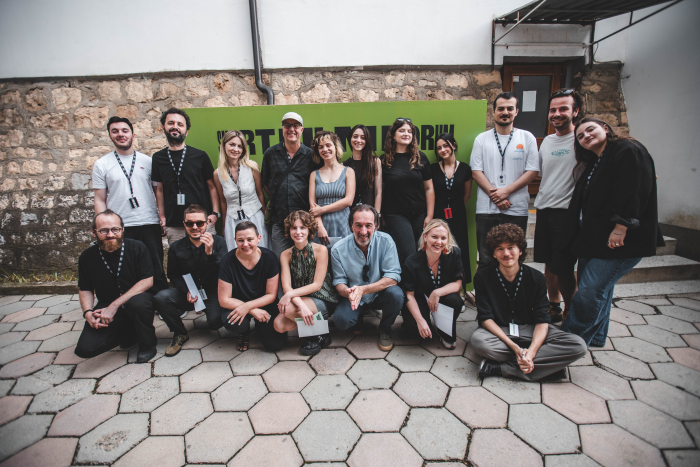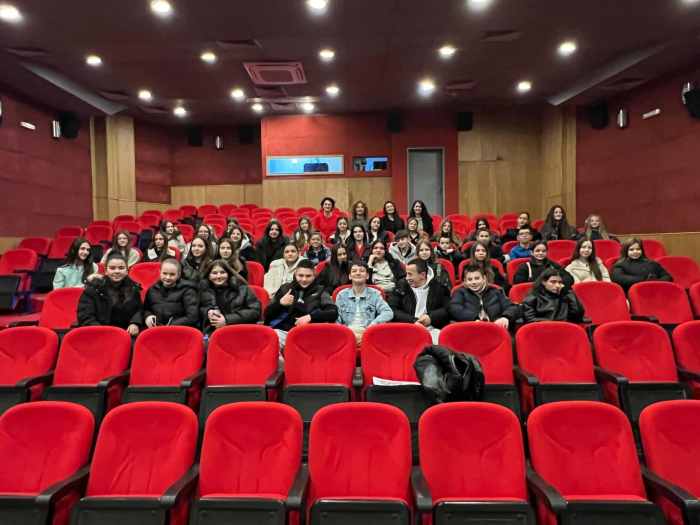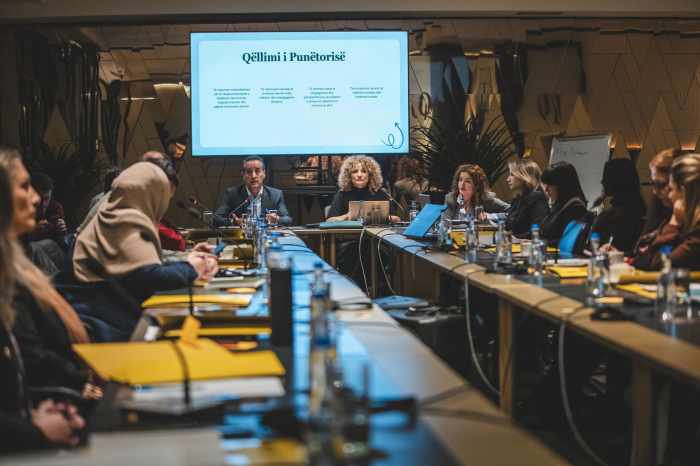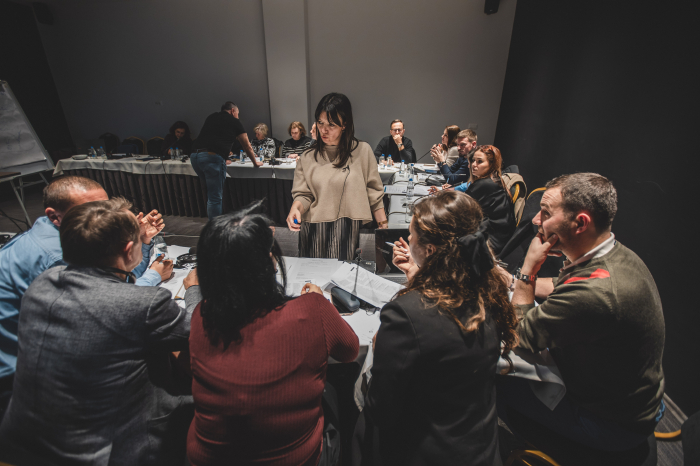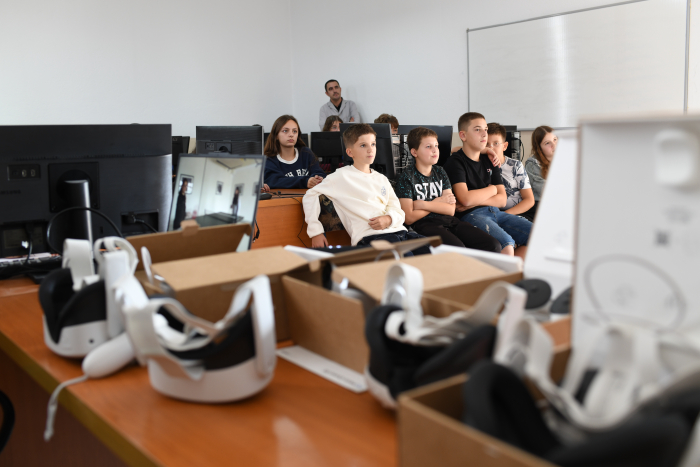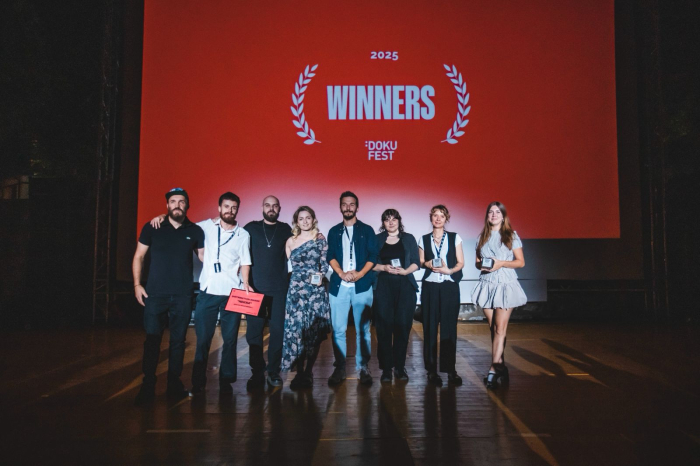June 24, 2022
DokuFest presents the first in the series of special programme announcements, titled ‘Double Burdens: Exposures & Expressions’.
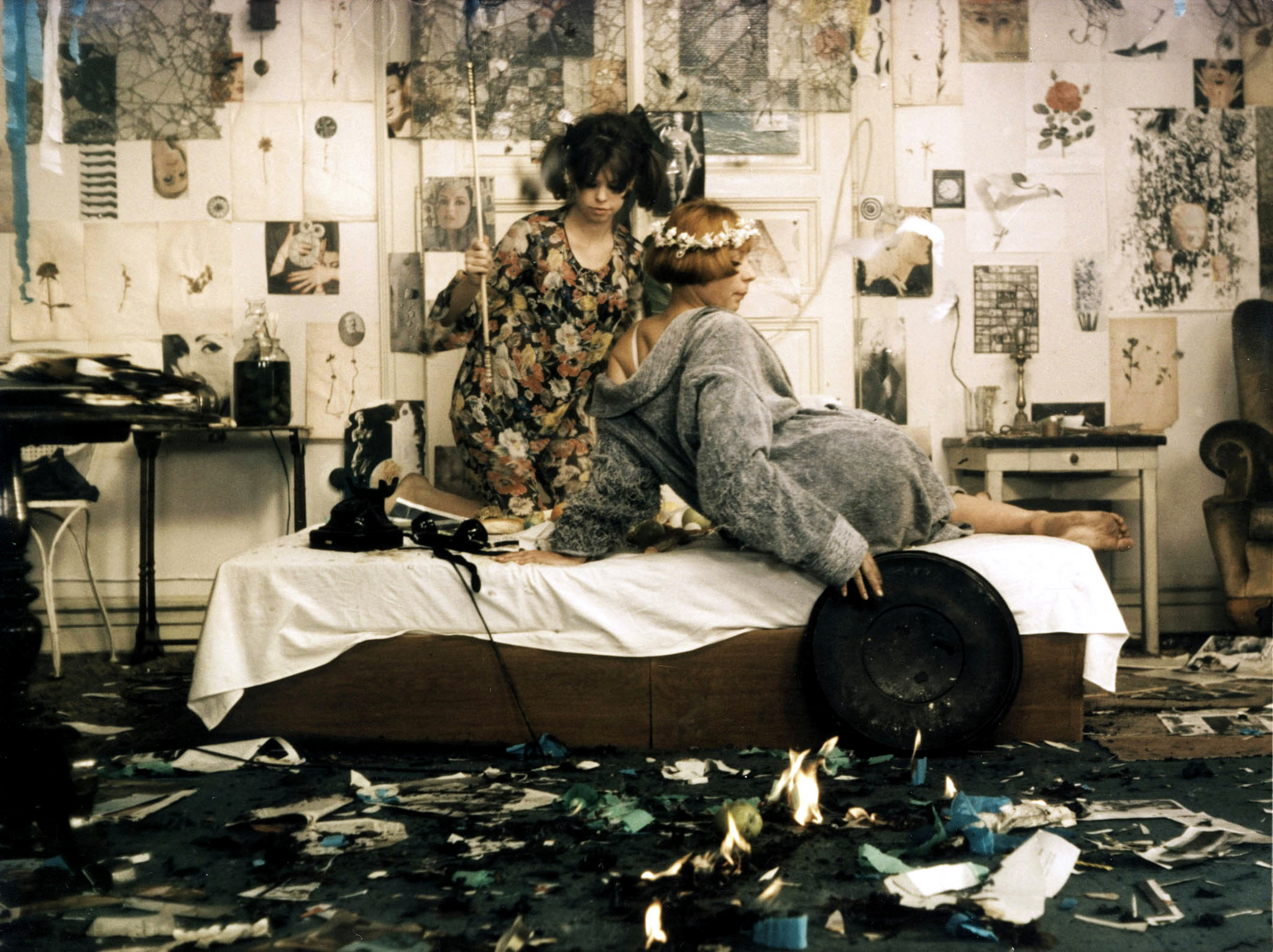
DokuFest is thrilled to present the first in the series of special programme announcements, titled Double Burdens: Exposures & Expressions, guest curated exclusively for this edition of the festival by Toronto International Film Festival’s programmer Dorota Lech, featuring 5 stelar films from the other side of Iron Curtain.
The films in this series are a testament to the audacity of their authors who met countless hurdles to manifest their visions onto screens. Drawing from their own lives, blurring the line between documentary and fiction, these films are full of messages, subtle and overt, giving us glimpses behind the curtain, where imaginations were borderless.
Films in a series are:
Daisies (Věra Chytilová, Czechoslovakia, 1966)
This timeless gem of feminist cinema belonging to the Czechoslovak New Wave, follows the misadventures of two young women named Marie I and Marie II, whose world is far detached from a traditional lifestyle, so much so in fact that it begs the viewer to open their eyes on what is sacred to them.
The Tied-Up Balloon (Binka Zhelyaskova, Bulgaria, 1967)
Zhelyaskova’s 1967 satirical comedy The Tied-Up Balloon (based on Yordan Radichkov's novel of the same title), is so politically daring that its premiere was banned by central authority due to its rugged depiction of life in Bulgarian villages as well as subtle hints about the origins of many of the state’s communist leaders.
It follows a Second World War story of an enormous goldfish-shaped balloon suddenly appearing above the Bulgarian countryside, which becomes synonymous with freedom for the peasants of Bulgaria.
Brief Encounters (Kira Muratova, Ukraine, 1967)
In Kira Muratova’s 1967 feature Brief Encounters, Muratova plays Valentina, a Ukrainian city councilor imprisoned in her conventionalities and performance as a model Soviet citizen. Her charming geologist husband Maksim periodically abandons her for his work in the field where he meets Nadia, a young waitress. Soon, Nadia travels to the city where she lands a job as a housekeeper in Valentina’s home. Nadia’s new vocation enables these two women’s narratives to interweave and reveal their emotional dependencies and dissatisfactions. Notorious for her sharp morality and nihilism, Muratova’s film, like most who bordered on a critique of system – in this case one that had promised utopian love but resulted in a double burden of balancing work and home – was banned until perestroika.
The Mona Lisa Without a Smile (Malvina Urșianu, Romania, 1968)
A cornerstone of Romanian modernist cinema, Urșianu’s ‘The Mona Lisa without a Smile’ comes after her political persecution and imprisonment, banning her from working in the film industry. It follows the story of a scientist named Caius encountering a former classmate, Cosma, at a press junket, discovering that the subject of Cosma’s work is their former school crush Irina. What unfolds with this reunion is nowadays seen as a subtle critique of Ceausescu's regime.
My 20th Century (Ildikó Enyedi, Hungary, 1989)
Enyedi’s 1989 debut ‘My 20th Century’ muses on the twin origins of modernity and cinema - electricity through displays of a dog undergoing a Pavlovian experiment, or the entrance of twin infants Dóra and Lili into a world of impoverishment yet acutely idealized theatricality. Enyedi’s enamourment with universal concepts and material dilemmas,pointedly remind us that our 20th century is one of paradoxes and we, like the dog connected to electrodes, knew little of the universe beyond our own “laboratory”.
